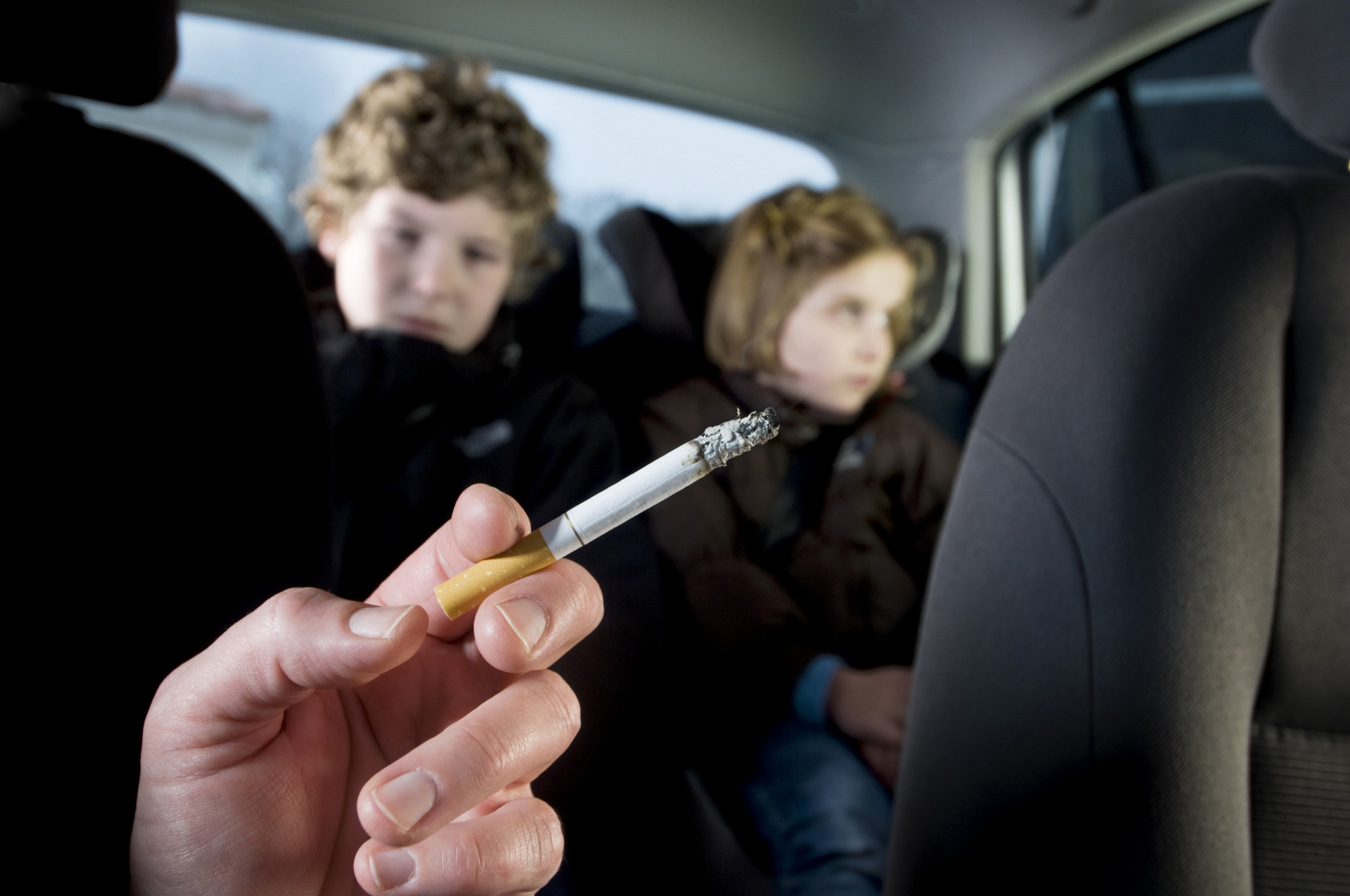Passive Smoking May Make Kids Obese, Hamper their Cognitive Skills
Health Newsline – News Developments in Healthcare, Life Sciences & Medicine
January 29, 2016
By Marco Reina
 Beware, tobacco users! Passive smoking could jeopardize the health of your children who, when around you, involuntarily inhale smoke from your cigarette.
Beware, tobacco users! Passive smoking could jeopardize the health of your children who, when around you, involuntarily inhale smoke from your cigarette.
Exposure to secondhand smoke or breathing in someone else’s cigarette smoke may make children grow with poorer cognitive function and larger waist which is associated with increased risk of cardiovascular disease and diabetes, a new study has warned.
In order to come up with the conclusion, a team of researchers headed by Catherine Davis, clinical health psychologist at Georgia-based Augusta University, examined passive smoke exposure in 220 overweight or obese boys and girls of 7-11 years of age.
Davis and team found the presence of almost all measures of adiposity (amount of body fat), including bulging bellies and overall fat, in the children who were exposed to smoke.
“And every single one of our cognitive measures was poorer in the smoke-exposed children,” said Davis, adding the percentages of body fat in children exposed to second-hand smoke were substantially higher than in their non-exposed counterparts who were also heavy, further augmenting their risk of heart disease, diabetes and other health problems related to excessive body weight.
Although a connection between overweight and reduced cognitive function has already been established in previous research, the latest research has found passive smoke could independently influence the cognitive performance.
“All the bad things fat does to us, passive smoking makes worse,” affirmed study co-author Dr. Martha S. Tingen, Charles W. Linder, M.D. Endowed Chair in Pediatrics at MCG and director of the Tobacco Control Program at the Cancer Center at Augusta University.
“And children who were exposed to second-hand smoke scored poorer on all cognitive tests, shortfalls that can translate to a poorer attention span and lower grades in the classroom and on standardized tests,” she added.
What surprised the researchers was that passive smoke exposure apparently did not worsen breathing abnormalities like snoring and shortness of breath during sleep in children. They also not found any link between passive smoking and prediabetes, insulin resistance and fat around internal organs in the abdomen. However, the fat accumulation around the midsection of the body of the smoke-exposed children is considered a risk factor for such obesity-related health problems as vascular disease and diabetes as well as heart disease and stroke.
“If you are breathing in second-hand smoke, it’s almost as bad as if you were smoking the cigarette yourself,” Tingen warned.
“The take-home message is that for these children, smoke exposure was connected to two major adverse health outcomes, one above the neck and one below the neck,” Davis concluded.
So smokers, if you want your children to grow as smart and healthy as they can be try kick this habit, or at least, avoid smoking in the presence of your kids.
Davis and Tingen noted their findings in a paper published in the journal Childhood Obesity.